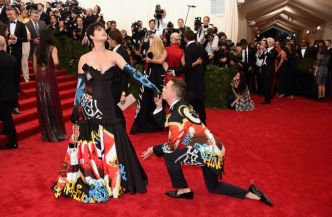“My fingers are long and beautiful, as, it has been well documented, are various other parts of my body.” – Donald Trump to Page Six on April 3, 2011.
“If they’re small, something else must be small,” [about Marco Rubio referring to his hands and genitals,] “I guarantee you there’s no problem, I guarantee you.” – Donald Trump at the March 3, 2016 Republican Primary Debate in Detroit, Michigan.
Donald Trump is not one to take the high road and let an insult to his manhood go unchallenged. So, it comes as little surprise that when Los Angeles based artist Illma Gore painted a nude portrait of him, Donald Trump, or at least his people, took an interest. The artwork, a censored version of which is shown below, shows a nude Donald Trump, face contorted in the midst an undoubtedly newsworthy quote, micropenis smugly displayed (uncensored version here). Titled “Make America Great Again,” Gore first shared it on Facebook with the tag line, “You can be a massive prick, despite what is in your pants.”

“Make America Great Again” [censored] – Courtesy of Illma Gore – http://illmagore.com/
